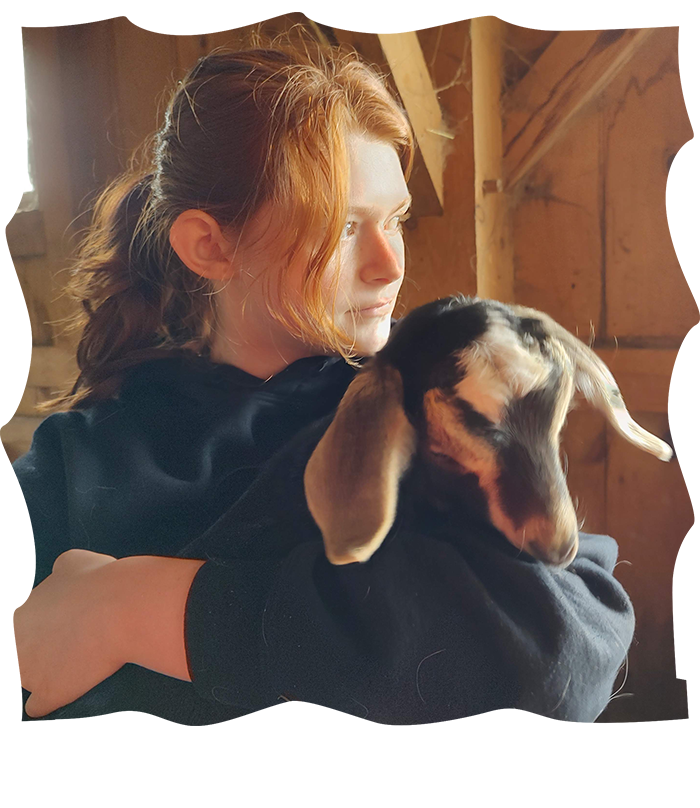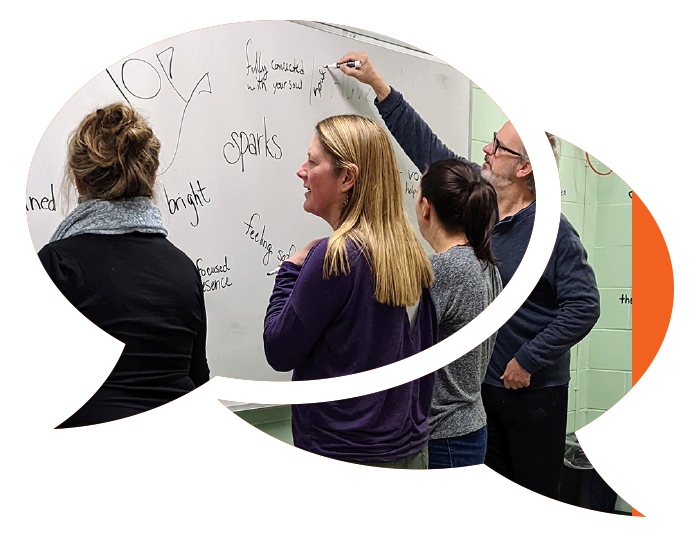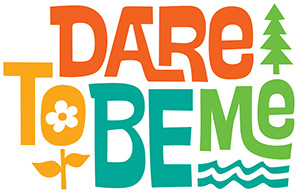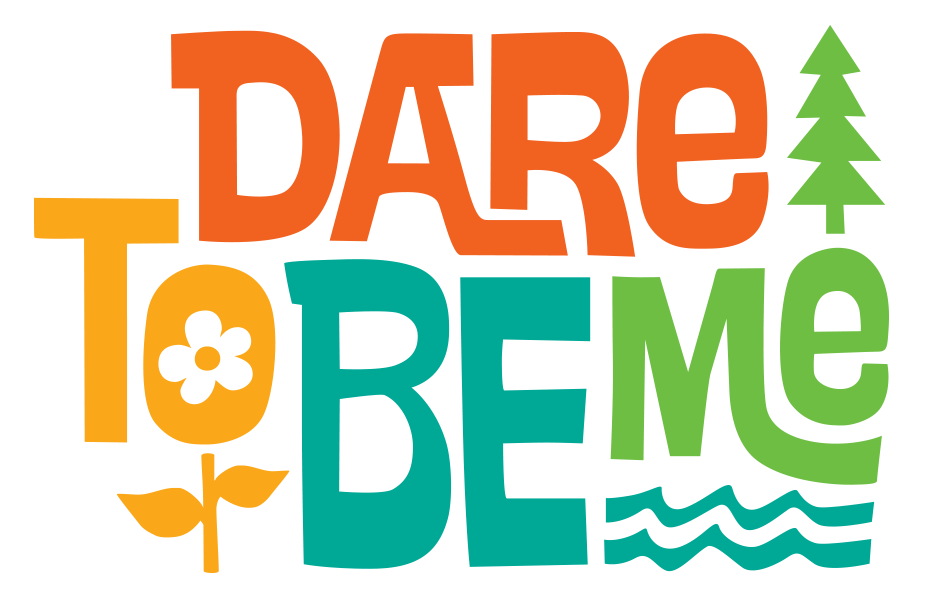Why Dare To Be Me?
Students in the Dare To Be Me inspired Integrated Math class and their teacher Michele Fox solve algebraic equations together after having enjoyed a math literacy walk in the sun.
Dare To Be Me is
for EDUCATORS

Dear Educator…
Imagine there is time and space for you to learn about your students and how to immerse them fully in the subject matter about which you care so deeply?
Imagine a classroom where
- You and your students are balanced, open, and ready to learn with and from each other.
- You and your students become partners in learning.
- You and your students get to listen deeply from the heart.
- You and your students come to appreciate how to learn through movement and the use of senses.
- You and your students lead respectful, meaningful and courageous conversations.
- Your students feel seen, heard, and celebrated for who they are.
- Your students become curious, confident, and intrinsically motivated learners.
- Your students are fully present and excited to be in school.
Incorporating the Dare To Be Me philosophy and strategies into your teaching practice will give you the chance to create a safe learning environment where your students can feel alive, confident, and prepared to engage with you as curious learners.
The Dare To Be Me philosophy is built on the following four pillars:
- Fostering courage (Dare)
- Adopting a growth mindset (To)
- Developing a sense of belonging (Be)
- Nurturing self-expression (Me)
Here are some examples of how Dare To Be Me educators have begun to implement Dare To Be Me strategies in their schools:
- Reinventing the Literacy Lab structure in a 9th grade English class to provide opportunities for reflection and personal growth in addition to supporting students’ reading, writing, listening and discussion skills.
- Piloting a Dare To Be Me class during a 7th and 8th grade Skills Block in order to help students become more aware of themselves and their role as contributing citizens.
- Facilitating Dare To Be Me inspired activities at faculty and professional learning community meetings in order to foster wellbeing, joy, connection, and trusting relationships.
- Intentionally incorporating Dare To Be Me movement activities in a Kindergarten classroom in order to give students a growing sense of balance, rhythm, and teamwork.
Dare To Be Me is not only for students who are struggling. It benefits ALL students (and teachers) and can be modified to fit any population and any learning environment.
A professional development community centered on courage, love, and hope.
The Dare To Be Me Professional Development Course
Whether you are new to the teaching profession or have been in the classroom for many years, you are surely aware of the ever-growing needs of our students and the relentless demands on us to meet those needs, no matter how exhausted we may be or how limited our resources. Instead of adding more to your plate, the Dare To Be Me professional development course gives you time and space to breathe, to connect with others in a safe and supportive community and to find your way back to yourself as a person and to your why as an educator. Simultaneously, you will learn how to incorporate the philosophy and practice of Dare To Be Me into your own learning environment.
This course is about you, who you are and who you want to be as a person and as a teacher.
The Dare To Be Me professional training course is about exploring what can happen in a classroom or school environment when you turn education on its head and make it come alive again. As you embark on a journey of self-discovery and empowerment through time in Nature, games, mindfulness activities, quiet introspection, reflective journaling and deep, meaningful conversations you will feel challenged physically, emotionally, and intellectually. You will experience growth in countless and unexpected ways and you will be left with a renewed sense of belonging and purpose.
The Dare To Be Me professional development course is for educators, administrators, counselors, nurses, support staff, social workers, mental health clinicians, and anyone else who works with students.
Participants earn 3 graduate credits from Vermont State University – Castleton. The class is held in person one Saturday a month for the entire school year at Hazen Union School in Hardwick, Vermont.
For registration information and exact dates, please click on this link.
You can view the syllabus here.
DTBM educators in action.

Here is what participants have said about this course:
The most important aspect of the course for me, aside from mindfulness and connection with others, was the chance to practice the activities, to experience the flow through the seasons with each other–which is really different than talking about the activities. It means that I have body memory of the activities, and a strong sense of how I was impacted. This gives me great motivation to do them with students. — Karen Liebermann, DTBM cohort 2023-24
Things I have changed because of this class:
- My way of being with students
- Truly listening to them
- Looking beyond the behavior to see the need
- Being more aware of my thoughts and energy
- Slowing down and being less reactive
- Holding higher standards for work and behavior while still being compassionate
- Incorporating more movement into lessons — Michele Fox, DTBM cohort 2023-24
Dare To Be Me has brought me back to the mindset that started me on my teaching journey over 20 years ago. It has rekindled the idealism and unbridled audacity that may be my only antidote for the apathy, detachment, and dysregulation that I encounter in students everyday. — Timothy Dobson, DTBM cohort 2021-22
I appreciate so much the energy of each class. I was able to settle into a place of peace and comfort almost immediately in the space. Each lesson was thoughtfully crafted and delivered. The questions invoked always led to everyone’s engagement because they were about being human in this world, in nature. There was also a playful aura around each class. I always felt like I was on a journey toward a new insight but was never looking toward the end goal or the end product. Instead, I felt like my learning was happening as I moved through the experience. — Angela Bauer, DTBM cohort 2021-22













